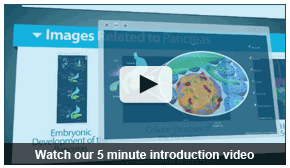-
Embryonic Development
-
Stem Cell Differentiation
-
Regenerative Medicine
Scheie Syndrome
- Cell Therapy Approaches
Mucopolysaccharidoses are a group of metabolic lysosomal storage diseases caused by the absence or impaired function of lysosomal enzymes required for glycosaminoglycan metabolism. As a result, glycosaminoglycans accumulate in the cells, causing cellular damage which affects the function of multiple organs and, in most cases, leads to mental retardation.
Mucopolysaccharidosis I (MPS I) arises from impaired or absent alpha-L-iduronidase (IDUA) enzyme function and is categorized into three subtypes (Hurler syndrome, Hurler–Scheie syndrome and Scheie syndrome) based on severity of symptoms.
Cell Therapy Approaches
Currently, two treatment options are available for MPS I: enzyme infusion therapy and stem cell therapy. Enzyme therapy effectively addresses hepatosplenomegaly, improves cardiac and respiratory disease, but, since it does not penetrate the central nervous system (CNS), it is not effective in treating CNS disease. Thus, stem cell transplantation is the standard treatment for infants with a risk for neurologic degeneration. Stem cell engraftment results in stabilization of the CNS disease, reverses the hepatosplenomegaly, improves cardiac and respiratory diseases, but does not eliminate the corneal disease or stop the skeletal disease progression.



